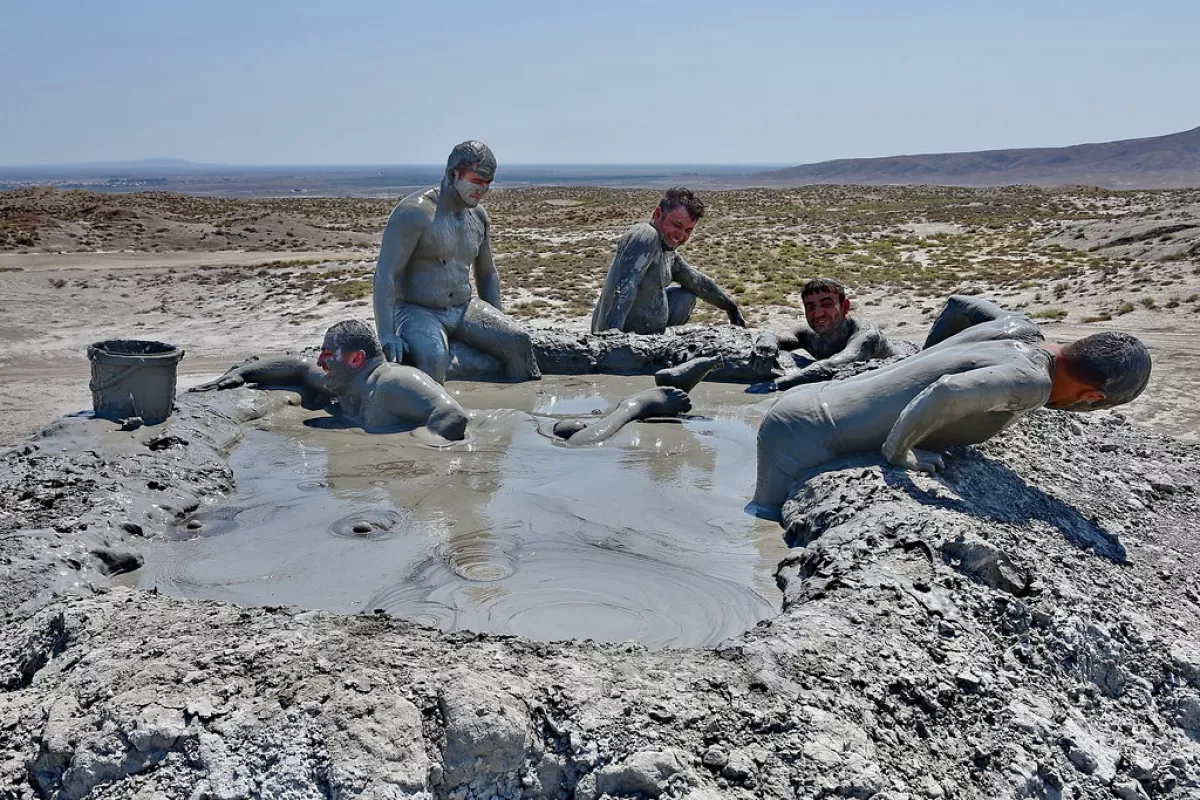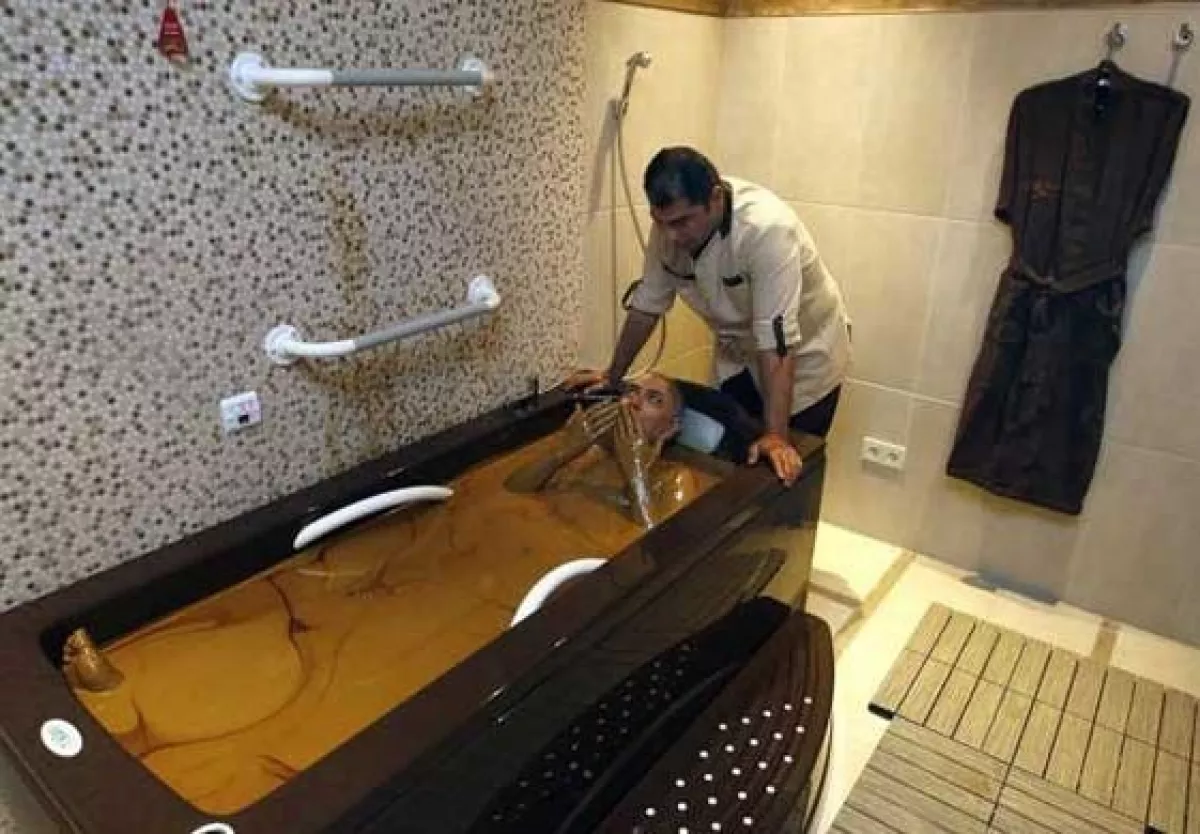Azerbaijan's medical tourism priorities Revitalizing Naftalan and Karabakh resorts
In recent years, Azerbaijan has undertaken significant measures to unlock the potential of health resort tourism. The State Tourism Agency (STA) is actively developing a national strategy for health tourism, preparing regulations to designate Naftalan as an official resort zone, and working to revive the balneological resorts in the Karabakh region.
These initiatives aim to create new specialized destinations, promote local brands, and enhance the international visibility of Azerbaijan's health resorts, ultimately increasing inbound tourism. The future of the medical tourism sector was a key topic at a recent conference organized by the STA in Shusha, titled “Health tourism in Azerbaijan: opportunities for development.”
Over the past fifteen years, Azerbaijan has made significant strides in revitalizing health and wellness resorts established during the Soviet era. Leveraging an effective public-private partnership model has enabled the rapid restoration of resource bases and the construction of modern balneological facilities.
The primary focus has been on the reconstruction of popular Soviet-era resorts such as Naftalan, Galaalti, Istisu, and Duzdag (Nakhchivan Autonomous Republic). These areas have seen the establishment of comfortable hotels and state-of-the-art treatment centres equipped with the latest technology, leading to a substantial increase in tourist arrivals from both neighbouring and distant countries. From 2016 to 2019, tens of thousands of visitors from 70 countries came here annually for health treatments and relaxation.
Notably, domestic thermal and wellness resorts have been particularly popular among guests from Russia and other former Soviet states. It’s no surprise that these destinations consistently ranked among the top choices in the annual reports from organizations like the Association of Tour Operators of Russia (ATOR) and the Russian analytical agency "TurStat."
In addition to these resorts, various health and recreational centres continue to operate in regions such as Absheron, Shabran, Gabala, Lankaran, and Shaki, attracting local tourists. Furthermore, Azerbaijan has an underutilized asset in its approximately 350 active mud volcanoes, whose therapeutic mud can be harnessed for health treatments.

The revival of the recreational sector in the post-pandemic period coincided with extensive restoration and construction efforts in the Karabakh and East Zangazur economic regions. Alongside the rebuilding of infrastructure, housing, and social and industrial facilities, work has commenced to develop the tourism potential of these areas, including its balneological segment.
"Specialists from the State Tourism Agency (STA) have assessed the opportunities related to medical tourism in our country and prepared a report titled 'Health tourism in Azerbaijan: opportunities for development.' To facilitate the development of this sector, a working group has been established, comprising representatives from various government and private institutions, as well as public organizations," announced Fuad Nagiyev, chairman of the STA, during the conference in Shusha.
As part of these efforts, the State Tourism Agency (STA) has begun developing a health tourism strategy for Azerbaijan this year. The document will be based on an analysis of state policies and strategic approaches to developing health tourism, incorporating best international practices in the balneological segment and drawing on the experiences of countries such as Türkiye, Malaysia, the Czech Republic, and Thailand. Ultimately, the strategy will include the most suitable directions aligned with Azerbaijan's capabilities.
Additionally, research will be conducted on the natural resources for health tourism in the territories recently liberated from occupation, specifically in the Kalbajar, Lachin, and Shusha regions. This aims to enhance the analytical document on health tourism that was developed three years ago. The strategy will also consider key service export directions—particularly the inbound tourism vector—assess the competitiveness of various destinations, and incorporate relevant recommendations.
Initial steps in this direction have already been taken, noted Fuad Nagiyev, chairman of the State Tourism Agency (STA): "Turkish specialists have been engaged to research the resource base and explore tourism opportunities in Karabakh and East Zangazur, where there are many regions with rich potential for health tourism."
According to the head of the STA, the Kalbajar region stands out particularly due to its balneological possibilities. Out of five tourist and recreational zones proposed in the prepared conceptual document for tourism development in Kalbajar, two are specifically geared towards health tourism, while another two are based on the potential of mineral and thermal springs. Nagiyev also highlighted the Lachin region, which is rich in mineral and thermal water resources. Additionally, mountain resorts focusing on wellness tourism are planned for development based on the recreational opportunities in the city of Shusha.
Of the approximately 930 mineral springs in Azerbaijan, 120 have been surveyed in the liberated territories, offering therapeutic waters with various gas and chemical compositions.
Notably, construction has already begun on balneological resorts in the territories liberated from occupation in Azerbaijan. Specifically, work is underway on a recreational and balneological zone in Kalbajar, which is rich in thermal and mineral springs, including the Yukhari and Ashaghi Istisu springs. A wellness complex is being built here, featuring a hotel with 145 rooms and 10 cottages.

According to specialists, the therapeutic waters, along with the favourable climate, picturesque mountain landscapes, forests, and rivers of the Kalbajar region, are expected to soon transform this mountainous area into a resort and tourism zone of international standards.
The strategy for health tourism will focus primarily on further developing the balneological potential of the Naftalan resort. According to a presidential decree issued on September 28, 2024, titled “On Additional Measures Related to Increasing the Role of Naftalan Oil in the Development of Medical Tourism,” plans include the continued promotion of Naftalan oil as an export tourism product, expanding its presence in new markets, and conducting new medical research to enhance its medical applications.
Efforts are also planned to establish a mechanism for developing the value chain of Naftalan oil, from processing to consumption. “Naftalan oil is the leading natural healing resource in the country and is effective in treating various diseases. Approximately half of the health and wellness facilities operating in Azerbaijan are located in this city,” noted Nadir Zeynalov, Deputy Minister of Health of Azerbaijan, during the conference in Shusha.
He further emphasized the need to establish regulations for Naftalan's designation as a resort zone and advocated for promoting Naftalan globally as an Azerbaijani brand. "Advertising alone is not enough; we need evidence and scientific publications in international journals, along with the promotion of new treatment methods," he added.
During the panel sessions, forum participants emphasized that overcoming certain industry challenges is essential for the effective commercialization of the country’s balneological potential. These challenges include high transportation costs and the seasonality of tourism. Additionally, improving the quality of provided medical services, enhancing their effectiveness, and increasing the overall competitiveness of the industry are critical.
“Providing authentic, reliable services in this field will enhance patient satisfaction and trust. Services should not only offer high-quality medical procedures but also incorporate effective treatment methods. Regular audits are necessary to ensure that health tourism services comply with international standards,” stated Alina Huseynli, Director of the Spa and Balneology Institute in Karlovy Vary, during the panel discussion.
Overall, the conference in Shusha, which included representatives from relevant government agencies and around 200 healthcare and medical tourism specialists from Azerbaijan, Türkiye, Kazakhstan, Russia, Switzerland, the Czech Republic, and Malaysia, featured panel discussions and also inaugurated an exhibition showcasing the wellness tourism industry.








